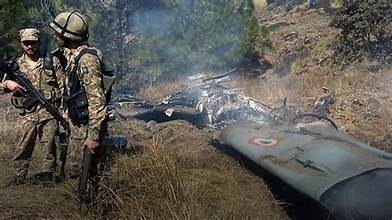Tensions between India and Pakistan have reached their highest point in decades following recent military airstrikes and drone clashes.
The conflict intensified after India launched targeted airstrikes against what it described as terrorist camps linked to Lashkar-e-Tayyiba and Jaish-e-Mohammed inside Pakistan’s Punjab province. These strikes came in retaliation for a deadly terrorist attack in Kashmir that killed 26 Indian tourists on April 22.
In response, Pakistan claimed it had shot down at least 25 Indian drones overnight, calling it a “serious provocation.” Four soldiers were injured and one civilian killed, according to Pakistani officials. However, CNN has not independently confirmed these claims, and India has not acknowledged any drone or aircraft losses.
Rising Fear of a Larger Conflict
Both countries are nuclear-armed and have fought three wars over Kashmir, a region both claim. Experts warn that any further military action could lead to a full-scale war.
A French defense source said India may have lost a Rafale fighter jet, one of its most advanced aircraft. Pakistan also claimed it shot down five Indian jets, but India has not confirmed this. If true, Pakistan could claim a symbolic victory, even with unclear details.
Media and Political Reactions
In India, the media celebrated the strikes. Headlines called it “Justice Served” and “Strokes of Justice”, praising India’s strong response to the Kashmir attack.
In Pakistan, Prime Minister Shehbaz Sharif said, “It only took a few hours for the enemy to fall on its knees,” vowing to avenge the deaths of 31 Pakistani civilians.
General Asim Munir, Pakistan’s army chief, promised a strong military response if India escalates. He is known for his tough stance on India’s leadership, especially against Prime Minister Narendra Modi.
What’s at Stake?
- India has a larger and more powerful military and an economy 10 times bigger than Pakistan’s.
- However, Pakistan faces major issues like political instability, terrorism, climate disasters, and economic struggles.
- Any military conflict could harm both nations, especially when India is positioning itself as a future global power, eyeing the Olympics and aiming to compete with China in manufacturing.
Calls for Peace and De-escalation
Diplomatic efforts are underway. India has reached out to the U.S., Gulf countries, Russia, and others to reduce tensions. Qatar, UAE, and Saudi Arabia are expected to play a key role in mediating peace.
Top analysts believe both sides may back down to avoid a large-scale war, but the situation remains highly volatile.
“This is one of the most dangerous and unpredictable crises in recent times,” said Michael Kugelman, a South Asia expert based in Washington.
Conclusion
The current crisis between India and Pakistan poses a serious threat to regional stability. With each side claiming victory and preparing for potential retaliation, the next move—especially from Pakistan—will determine whether the crisis escalates or cools down.







